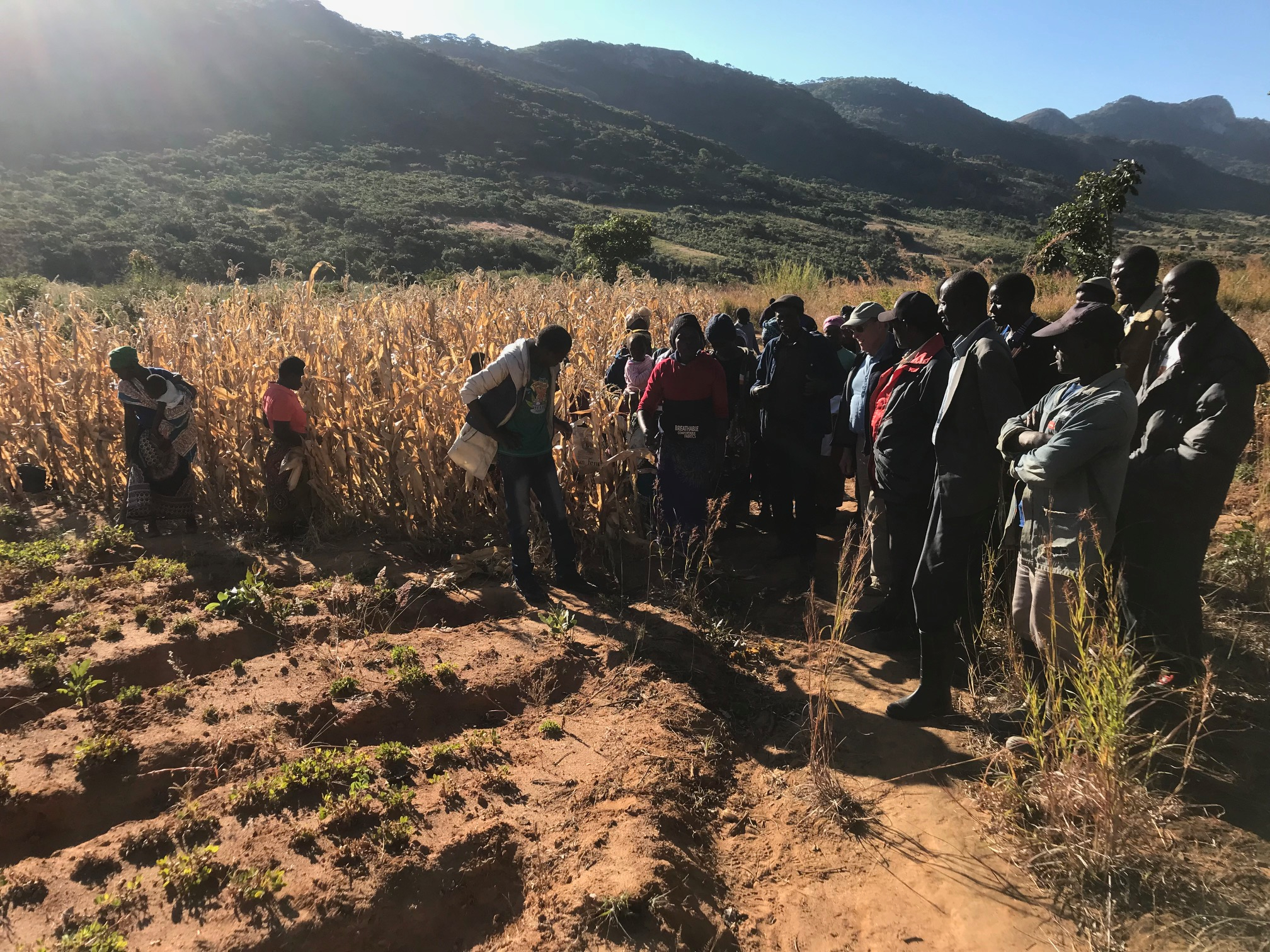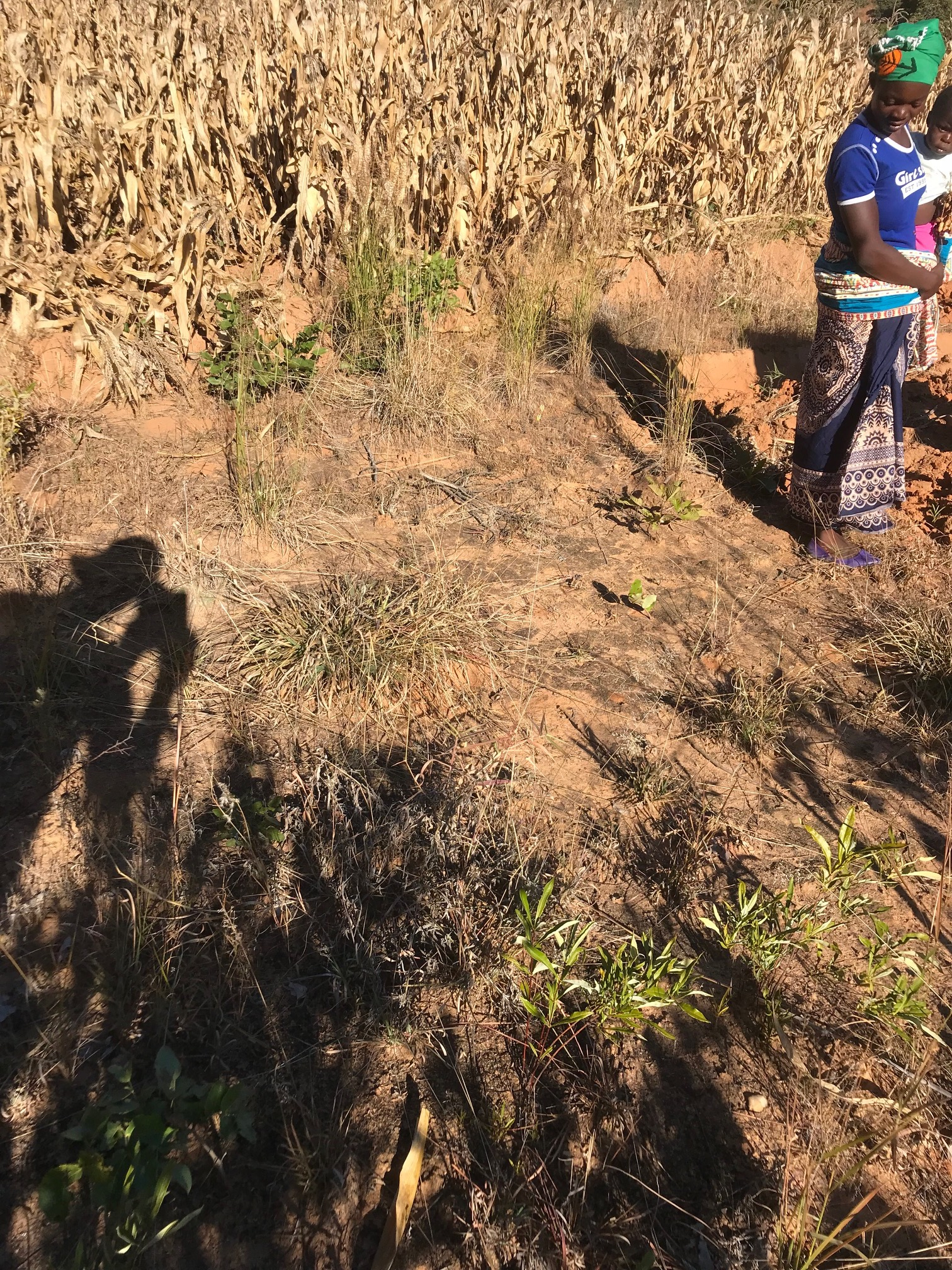Until 2018, nobody in Bula knew about Deep Bed Farming ...
16 June 2018
... and then Tiyeni field officer Love Msiska arrived. She's well qualified in agriculture but, more importantly, is an excellent communicator - and very clear in what her role is.
Farmer Thomas Mwale had given up on his land - in his words - abandoned it. However, with Love’s advice, he thought he would try Deep Bed Farming on some of the abandoned land. He did not have much hope, but with encouragement from other local villagers he decided to give it a try.
When the first Deep Bed crops were harvested, yields were at levels not seen for decades in this mountainous village.\
So why was this? Well, through years of ridge and furrow farming imposed on farmers by “higher authorities”, the land had become so seriously depleted that some land was just not worth farming any more.\
Roll forward to 2019 and our pictures here.
Below, you can see the compacted clods he produced by breaking the hard pan. Once he had done this he made them into Tiyeni deep beds, following detailed training by Tiyeni on skills and knowledge.

The next picture, below, shows some of his land with crops of ground nuts in the foreground and maize in the background. The groundnuts were copious and well-formed. Each plant had 30 to 40 pods on it.

The third picture shows part of his abandoned land in the foreground, where even weeds grow only sparsely, and in the background, huge maize plants with healthy cobs - where nothing grew before.

Such is the magic of Deep Bed Farming. But of course, there is no magic involved!
Our methods are, at the end of the day, just plain common sense: the very words used by the farmers of Bula. When they start learning about this basket of simple land husbandry methods they grasp it quickly and soon thinking of ways to adapt it for their particular farms and conditions.\
So, they know that at the beginning they have to break the hard pan, but once tilled, they never have to do it again. And guess what is happening right now in Bula? Nearly all farmers are converting their land into Deep Beds.\
Eventually, we believe that this simple way of improving soil fertility by care for the soil, will spread throughout Malawi.